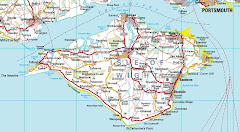
I should have added this earlier but hopefully it will answer your questions.
From my limited research and conversations so far I gather the NHS is more centralized than many of the other systems in Western Europe. This means there are more responsibilities to the government and accreditation is a big issue. Prior to World War II health care was controlled by illogically fragmented and overabundant medical authorities. There were actually 17 different authorities or zones on the island. The push toward the NHS rode the momentum of the spirit of unity and survival following the war and led to the downfall of conservative Churchill and adoption of a Labour government favoring social state reforms. Sweden is nearly identical but with greater local control while Germany and Spain sell compulsory insurance which provides services. Instead, the NHS is a tax based approach free upon delivery. Though there are charges for dental, ophthalmic, and prescriptions (these have come and gone over the years), every other service is absolutely free.
There are significant waiting times compared to the rest of Europe but Tony Blair’s reforms have diminished them from 18 weeks to 13 weeks. This is the time it takes for you to notice a problem, contact a doctor, schedule an appointment, be seen, and receive treatment so it isn’t as ridiculously long as we are made to believe. Of course if you’re very sick you are put on the fast track to treatment. As an example, the period of time from cancer detection to treatment must occur in under a month. If you are in a car accident or shot you can luckily just walk (or be carried) into the hospital instead of sitting around a few months. If you’d prefer to pay, elective or mildly urgent surgeries can be undergone in the private sector. Their creation has helped to reduce waiting but there are arguments that it takes away the easy and routine training opportunities for residents (junior doctors here). Recently, just this year, you are now able to see any GP or hospital that is accredited and maintained under the NHS umbrella. France is actually reversing this, providing incentives to stay with one GP.
The minister of health runs the department or ministry of health whose role changes with each government but essentially oversees the entire system. Under the department are 9 Strategic Health Authorities (SHA's) that manage further divisions including the Primary Care Trusts (PCT's), NHS Hospital Trusts, Ambulatory Care, Dental, Ophthalmic, and other trusts. Primary Care Trusts manage local health needs and contain the General Pratitioners. They are the gateway into the system and each GP has a set location and subset of patients. Hospital Trusts are the hospitals, and the other services fall into other trusts. The Isle of Wight Primary Care Trust belongs, with other PCT’s to the South Central Strategic Health Authority and ultimately to the minister of health. The island is unique in that the PCT takes on responsibility for the hospital, dental, ambulatory, ophthalmic, public health, and every other conceivable aspect of healthcare. It is thus all inclusive unlike other PCT’s that manage only GP’s. For this reason I chose to intern on the island so that I could witness the interworking of all facets of care on a small scale.



No comments:
Post a Comment